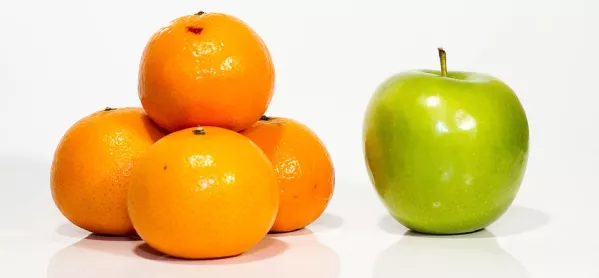You’d think, because they both have “school” in the title, that primary and secondary schools would have more in common than not. They are full of children, with teachers in charge of them and a person called a headteacher “in charge” of the teachers. There’s a secretary who sits in a reception area furnished with “comfy” chairs for visitors, some children are sat clutching a wet paper towel/ice cube in a plastic bag/sick bucket somewhere where they cannot infect/puke over unsuspecting members of the public, and a hall and/or a canteen that clatters all morning and fills up with steam for most of the afternoon.
There’s usually a library (or book corner at the very least) and displays that drift gently to the floor because someone has pinched the Blu Tack and there is a distinctive smell made up of sweat, washing powder and a hint of wee.
Primary or secondary, middle, junior or infants, there is that same mixture of the comic and the tragic: someone, somewhere, is always hooting with laughter and someone, somewhere, is always in need of a helping hand.
Primary versus secondary
But where primaries are havens of precision, every little thing counted in and counted out, lined up and labelled, stored in a clear plastic bag (or a poly pocket at the very least), I don’t think it would be entirely unfair to say that in comparison, secondaries are coordinated chaos. While in a primary school all you’d need to do is pop across the playground for a quick chat with the colleague, in a secondary, tracking them down involves a visit to reception to check their timetable followed by a trek around the school as you attempt to discover where they might be because they wanted to use the computers.
This is not to say that secondaries aren’t organised - far from it. But it’s as if you have five or six separate schools under the same roof, all with a highly mobile population. The monumental task that is arranging exams, year after year, is something that would make the average primary teacher’s eyes pop and cause their poly pockets to slither to the floor in amazement that they actually happen at all.
I guess it is, despite the name, and the fact that people who work in them are called teachers and teaching assistants, that we do very different jobs.
While the subjects we teach, despite the bigger classrooms and more specialised equipment, might be essentially the same (and some of the subject matter too), the role we play in the lives of growing children is not.
Where primary teachers might spend more time checking that everything and everyone is where it is supposed to be, none of them ever have a kettle in the classroom to make the students a cup of tea; the pastoral role played by all secondary school staff cannot be underestimated. Anyone who works in a secondary school is not so much a knowledge-sharer but a caretaker of our precious young people.
Nancy Gedge is Tes SEND columnist, coordinator of the Ormerod Resource Base at the Marlborough School, Woodstock, and author of Inclusion for Primary Teachers.




